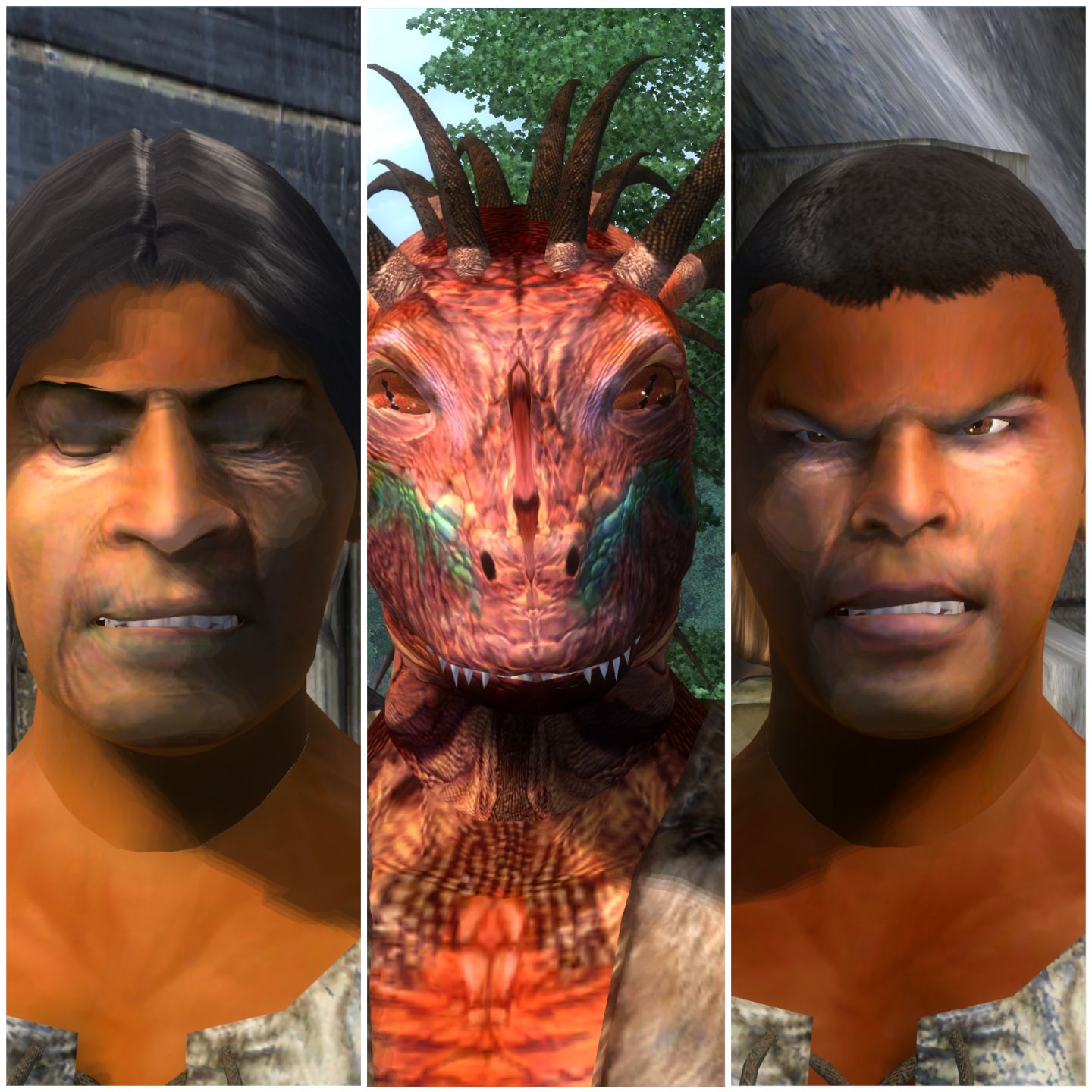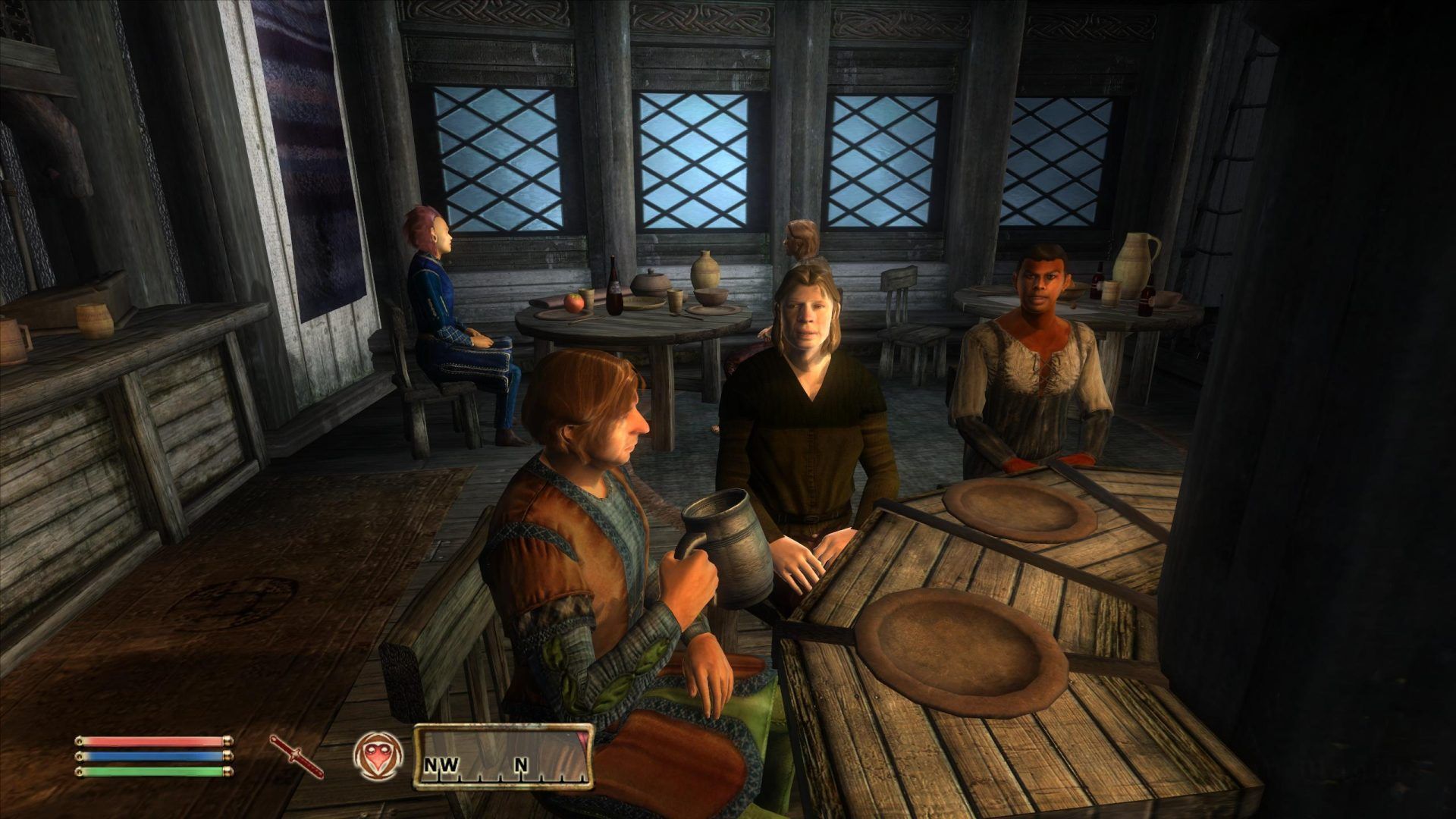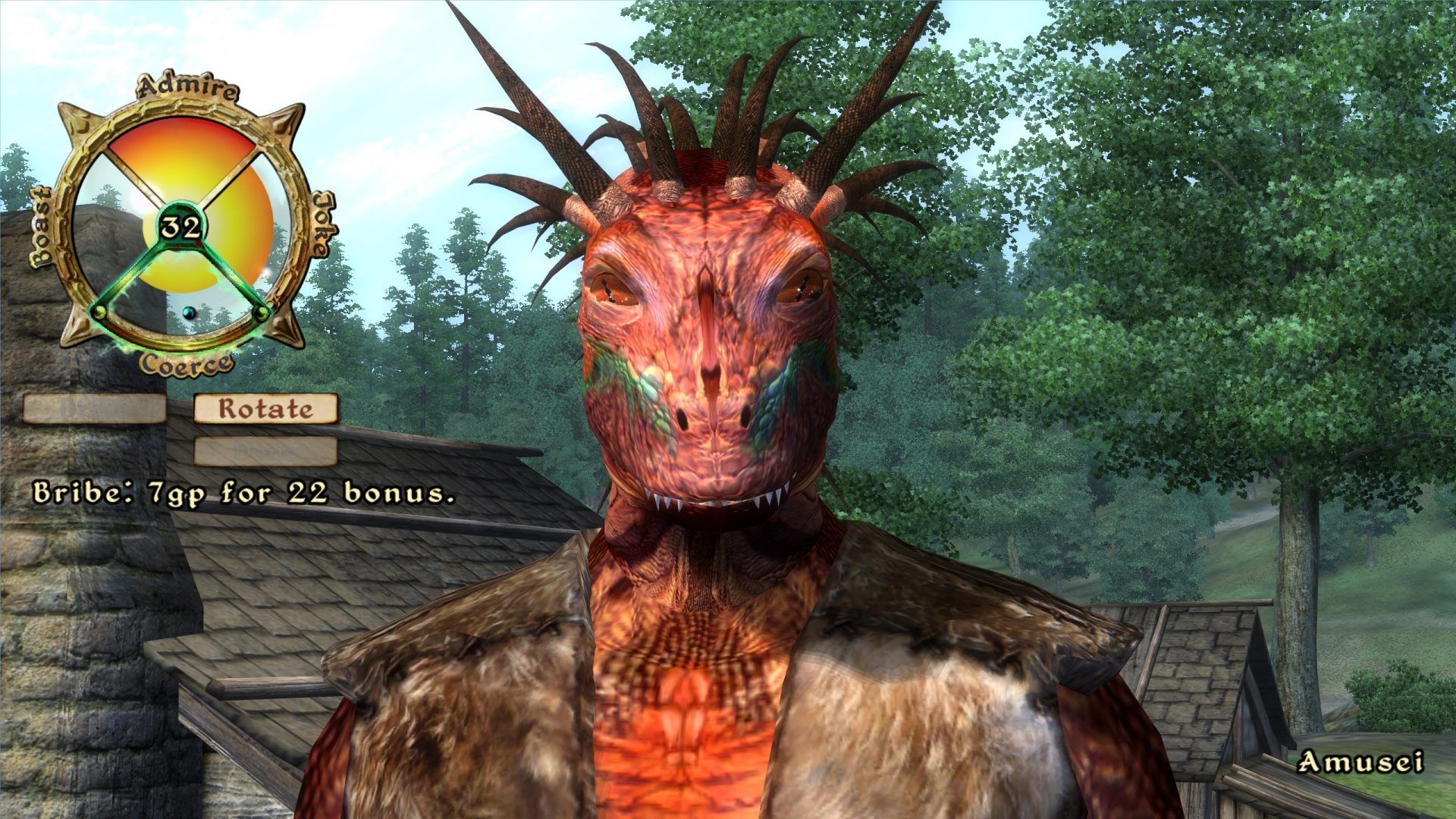There's a very good reason that The Elder Scrolls IV: Oblivion remains one of the most enduring, most memeable, and most YouTubeable (yep, definitely a real word) games in the world. It may have come out 16 years ago and the visuals on the bulbous faces of its NPCs may have aged as well as that creepy moon face from George Melies' 1902 movie A Trip to the Moon, but it also has qualities that give it a weirdly timeless appeal.
The reason for this is in large part thanks to Oblivion's Radiant AI system, which is capable of generating seemingly endless surreal scenarios thanks to the fact that NPCs in the game world have a whole spectrum of behaviours, routines, responses and reactions not only to you, but to their fellow NPCs. Naturally, the system is far from perfect, leading to all kinds of bizarre interactions, like the entire population of a town turning on each other off the back of a single punch, or an NPC casually getting back to reading a book after someone they're talking to dies from poisoning mid-conversation.
But you can find all the internet fodder on YouTube. Here, I want to talk about a largely forgotten system that manages to encapsulate so much of the off-kilter, twilight-zoney spirit of Oblivion: what I endearingly refer to as the Persuasion Pie.
The Persuasion Pie would pop up, as you might expect, whenever you'd try to improve your standing with a given NPC - be it to glean more information from them or get better prices at their store. The pie was split into quarters, with each quarter representing a different social interaction - Joke, Boast, Admire, and Coerce (y'know, those four fundamental pillars of human interaction). Each quarter-slice of the pie would be filled to a greater or lesser degree with a gauge, which would show you the degree to which that particular interaction would affect your relationship with that character.
While RPGs today might encourage you to get a feel for a given NPC's personality, then say the kinds of things that might appeal to that personality type, Oblivion went weirder. Before committing to an interaction, you could anticipate how the NPC would react to it by just highlighting that interaction, at which point their facial expression would change depending on which one you highlighted. This meant you had this weird preternatural insight into the NPC's response before you actually did anything, and had the ability to take that NPC's face on a bizarre journey of different emotions by just highlighting the different quarters of the pie.
It's not like they'd just smile at the prospect of being admired, either. In some cases, an NPC would beam at the prospect of being insulted or coerced, as if they've been waiting hopefully all day for someone to come up to them and call them a Netchhead, or a Mudcrabface, or whatever else passes for an insult in Tamriel.
It gets weirder. When you pick an interaction (ideally one with maximum impact that causes the NPC to beam with joy before you've even clicked it), the NPC reacts with classic lines like "Sure, that's cute" or, if they don't like what you have to say, the weirdly infantile retort of "You're a big, fat liar." After that, the overlay of the pie rotates and the interaction you've just done gets greyed out, forcing you to go through every single other interaction, trying to line them up so you land on the positive interactions with maximum impact, and negative interactions with minimum impact.
Now, a lot of RPGs have a lot of different ideas for how persuasion should work, and it's fair to say that games simulate the process of persuasion better than they did in Oblivion's day. The classic DnD way is to do a 'Persuasion Check,' which calculates your chances of getting your way based on your Persuasion, Charisma or equivalent ability. This was implemented in later Bethesda games, and in a purely logical way, it made much more sense than the Persuasion Pie, which forced you to joke, boast, coerce and admire an NPC in a single conversation, often in the space of about 20 seconds.
This Argonian is overjoyed at the prospect that I might be about to coerce him.
In today's world, such an aggressively fluctuating series of interactions would be symptomatic of a personality disorder. On the part of the NPC, eyebrows would also be raised over the fact that the degree to which they're affected by what you have to say can change drastically with each second. Crack a joke before admiring them, and they might find that joke the most hilarious thing in the world while casually shrugging off your admiration. Do it the other way round, and they might politely laugh at your joke while being outraged that you dared pay them a compliment: "I don't think you really mean that!"
It takes some serious mental gymnastics to convert Oblivion's persuasion game into anything resembling actual human interaction, but that feels befitting of a game that's become something of a rallying point for seekers of the strange. It was always odd, but back in 2006 we were too busy being dazzled by the many technical accomplishments of the game to notice. Today, Oblivion feels like an ethereal kind of dream world, with dissonant interactions reminiscent of a David Lynch film, and in its own way the Persuasion Pie fitted perfectly into that.
Like so many of the social interactions in Oblivion, the persuasion mini-game felt like a robotically designed simulacrum of human conversation, rather than anything resembling the real thing. The thing is, persuasion systems in modern RPGs may be more sensible and logical, but they've become background features, normally integrated into the dialogue choices available to you. They make more sense, but they're certainly not as memorable, and it's unlikely we'll see anything quite like Oblivion's spinning persuasion pie again.
That's probably for the best, and yet I can't help but love it.




